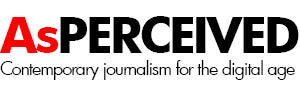A GREEN party politician in France has come close to endorsing theft as a legitimate challenge to privatisation.
Defending the online publication of the Diary of Anne Frank at the start of the seventh decade after the author’s death, French parliamentarian Isabelle Attard said that ‘fighting the “privatisation of knowledge” is an absolutely topical issue’.
While legal technicalities surround this particular publication, her comments raise concerns about the broader implications, especially for those ‘near the bottom of the creative food chain’.
Creators, especially individual writers, composers and artists, rely on retaining copyright and then issuing licences for the reproduction of their work to provide them with some income.
In the UK, copyright exists – by default – as soon as material is created.
Therefore, if someone wants to give away something they have created, be it a pot or a poem, that’s their choice and they have the freedom to do it. However, giving another person the only copy of a poem does not automatically transfer copyright in that literary work.
As another example, copyright in an e-mail message or personal letter remains with the writer, not the recipient – and despatch is not synonymous as an automatic licence to reproduce – with or without charge.
For individual creators, rights pay the rent.
For individual creators, rights pay the rent.
The expression ‘privatisation of knowledge’ is not helpful – as it conflates research (which can be considered to be the process of establishing knowledge) and the preparation of any findings for reading by others.
While multinational conglomerates may be seen as trying to exploit rights as much as they can, the importance of rights for those who actually create the material that those corporations develop and market can all-too-easily be overlooked.
With so many individuals either choosing to try to market their own material by becoming their own publishers, this stance from any politician can be misleading and unhelpful.
Many individual creators try to exercise some control over the licences granted for the reproduction of their work, so they generate (and, if they are fortunate, maximise) income from that work.
Depriving them of that right can be compared to making locks illegal: in that anyone can then enter another person’s home and help themselves to anything inside. The comparison may be extreme, but seems necessary as a way of illustrating the significance of such (mis-)understandings.
Talking about challenging the ‘privatisation of knowledge’ can be interpreted as trying to deny creators the rights to protect what they produce and could even be regarded as coming close to endorsing theft.
As a student at the University of Orléans, Isabelle Attard is reported to have worked as a freelance journalist for the newspaper La République du Centre.
Similar disregard for the rights of individual creators became apparent among Green Party candidates in the UK during the 2015 general election.
Campaigning by organisations such as the Creators Rights’ Alliance led to greater appreciation of the importance of rights and licences for individual creators.
However, as many individual creators have no pension provision, the importance of protecting rights that provide some income is becoming increasingly worrying.


